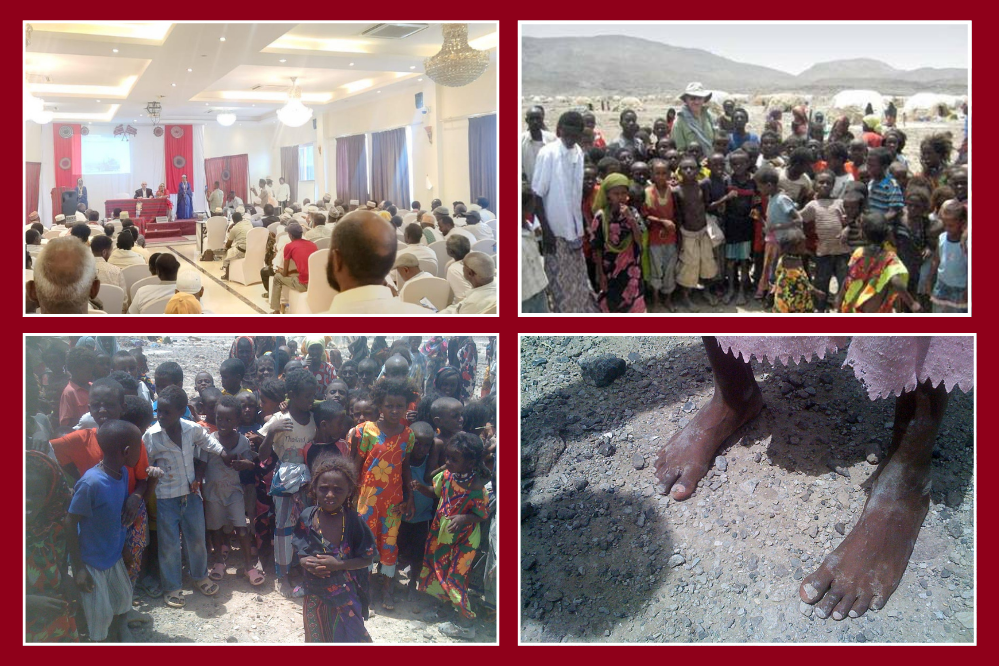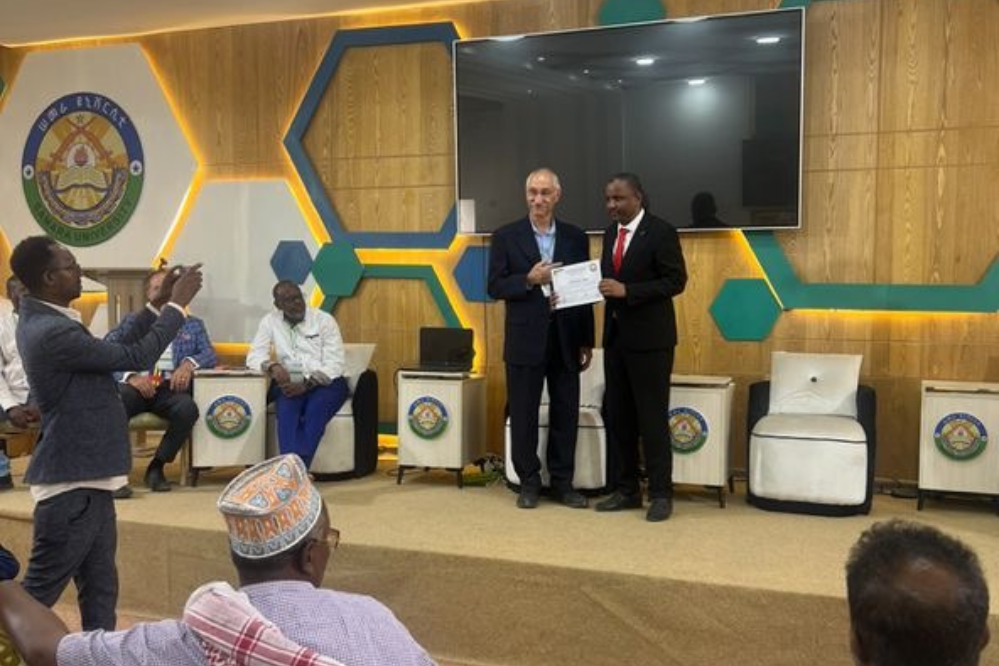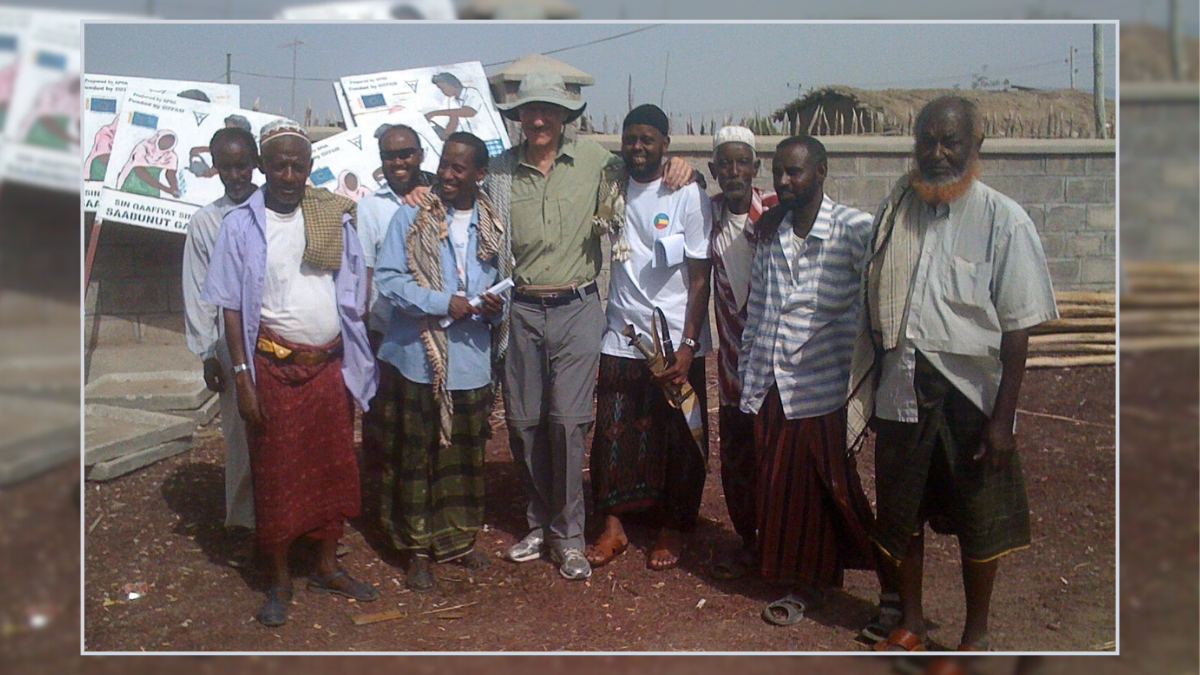The Afar are nomadic herders who live in one of the most inhospitable places on earth: the Danakil Desert, a vast expanse of volcanic rock and salt plains stretching across northeastern Ethiopia and into Eritrea and Djibouti. It is a land of extremes: scorching temperatures, scarce water, and frequent seismic activity.
Yet it is also home to 4,000,000 people of remarkable resilience and solidarity. “The Afar have an amazing solidarity among themselves,” says Magnet. “Nobody is ever cast to one side. Everybody is always included. It’s an amazing thing to experience.”
That warmth and unity first drew Professor Magnet in during his initial visit to the Afar region in 2010. “I thought I was going on a little adventure with my friends and I had no idea what I was getting into,” he recalls. “I was drawn in by the warmth of the people.”
But it was when he visited a refugee camp that he began to understand their oppression and their resilience. “I saw these children running around on sharp, stony ground. They had no shoes or protection. I realized how difficult their lives must be. So, with my own money, I bought 1,000 pairs of shoes and took them up to the refugee camp.”

This act of compassion was just the beginning of what would become a career-defining mission. In the years that followed, Professor Magnet worked to investigate and expose mistreatment, land confiscations, and persecution committed against the Afar people in Eritrea, which international bodies have since recognized as crimes against humanity.
“I was appalled to realize the extent of the oppression of [the Afar] inside of Eritrea. How many people have been disappeared and murdered...” he says. “My attitude towards life is: you do what you can, when and where you can.”
Professor Magnet’s work has helped bring the voices of the Afar to the United Nations and other international forums, pressing for accountability and justice.
“This situation presented itself and I thought ‘yeah, I might be able to do something about it,’” he reflects. He has been a prosecutor and has deep experience litigating large, transformative cases. Still, “I had no expectation that I would be able to persuade senior agencies of the United Nations to make findings that Government leaders in Eritrea committed crimes against humanity and recommend that the officials responsible be arrested. That was the furthest thing from my mind. I never thought I would have those kinds of successes, but I did — and hopefully they’ll make a difference.”
His decades of research and advocacy have been published in the paper Fifteen Years of Afar Advocacy: Perspectives on the Future of Eritrea, which documents his efforts to build a case for justice and propose pathways toward peace and democracy in Eritrea.

Professor Magnet was recently celebrated by Samara University in Ethiopia. He was awarded a Certificate of Recognition for his Constitution-building and human rights work, though he insists that the true reward lies in the progress made. “My real satisfaction comes from having made progress with the cause of the Afar people,” he says.
In a region marked by instability — where the tension between Ethiopia and Eritrea continues to threaten the fragile peace of the Horn of Africa — his work stands as a testament to what one individual can do when compassion meets conviction.
